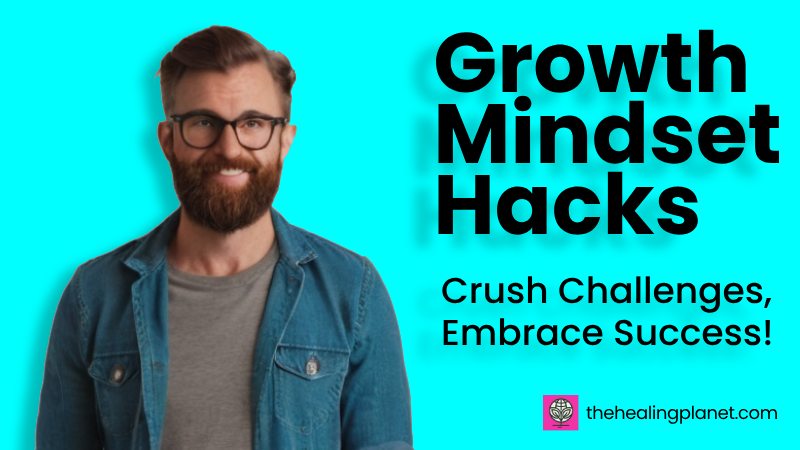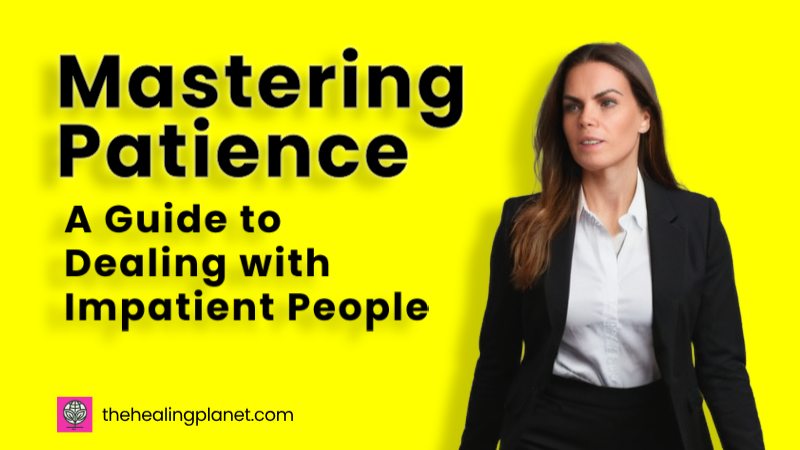Have you ever wondered why some people seem to effortlessly achieve their goals while others struggle and feel stuck? The answer lies in the power of mindset. Specifically, it’s all about having a growth mindset.
A growth mindset is a powerful tool that can unlock your true potential and pave the way for success. It is the belief that abilities and talents can be developed through dedication, hard work, and learning from failure. With a growth mindset, challenges become opportunities for growth, effort becomes essential for progress, and setbacks become stepping stones towards achieving greatness.
In today’s fast-paced world where change is constant and competition is fierce, developing a growth mindset has never been more crucial. Whether you’re aiming for personal or professional development or striving to achieve your most audacious dreams, adopting a growth mindset will empower you to overcome obstacles, persist through setbacks, learn from mistakes, and ultimately reach new heights of success.
If you’re ready to break free from limiting beliefs and tap into your full potential like never before, then keep reading as we delve into practical strategies on how to develop a growth mindset that will propel you towards accomplishing even your loftiest goals. Get ready to embrace the possibilities ahead!
Understanding Fixed Mindset vs Growth Mindset
In order to develop a growth mindset, it is important to first understand the differences between a fixed mindset and a growth mindset.
- A fixed mindset is characterized by the belief that your abilities and intelligence are limited, predetermined traits. People with a fixed mindset tend to avoid challenges, give up easily in the face of obstacles, and feel threatened or envious of others’ success.
- On the other hand, individuals with a growth mindset believe that their abilities can be developed through dedication and hard work. They see challenges as opportunities for growth, embrace failures as learning experiences, and view effort as necessary for achieving mastery in any area of life.
The key difference between these two mindsets lies in how we perceive our own potential – while those with a fixed mindset may hold themselves back due to self-imposed limitations, those with a growth mindset are willing to push beyond their comfort zones because they believe in their ability to learn and improve over time.
By recognizing the traits associated with each type of mindset, we can begin challenging our own beliefs about our abilities and adopt strategies that promote personal development. The aim is not only to cultivate positive thinking but also foster an active pursuit of goals through continuous learning and perseverance.
Benefits of Developing a Growth Mindset
Developing a growth mindset can have numerous benefits when it comes to personal and professional development. One key advantage is that it allows you to embrace challenges as opportunities for growth rather than obstacles holding you back. With a growth mindset, setbacks and failures are seen as learning experiences rather than reasons to give up.
Take the example of Michael Jordan, widely regarded as one of the greatest basketball players of all time. He didn’t make his high school varsity team at first attempt, but instead of perceiving this as a failure, he used it as motivation to work harder. His growth mindset allowed him to recognize that talent alone isn’t enough and that effort and perseverance were instrumental in achieving success.
Another benefit of adopting a growth mindset is improved resilience in the face of adversity. When faced with difficult situations or unexpected challenges, individuals with a growth mindset tend to be more adaptable and less likely to become discouraged or give up easily. This characteristic is particularly valuable in today’s rapidly changing world where resilience is crucial for navigating uncertainties.
Consider the story of J.K Rowling, who faced multiple rejections before her manuscript for Harry Potter was finally accepted by publishers. Her belief in her own abilities and determination allowed her to persist despite the setbacks she encountered along the way. By embracing failure as an opportunity for improvement, she achieved remarkable success.
By developing a growth mindset, you enhance your personal and professional development by transforming how you approach challenges and setbacks while fostering resilience.
Through perseverance and continuous learning, potential limitations become stepping stones toward achieving your goals.
Practical Strategies to Develop a Growth Mindset
Identifying limiting beliefs and challenging them
One of the first steps towards developing a growth mindset is becoming aware of your limiting beliefs.
These are thoughts or beliefs that hold you back from reaching your full potential. They can be self-defeating statements like I’m not smart enough or I’ll never be good at this.
Once you identify these beliefs, challenge them by questioning their validity and replacing them with more empowering thoughts. For example, if you catch yourself thinking I’m not good enough, remind yourself that everyone starts somewhere and that with effort and dedication, improvement is possible.
Embracing failure as an opportunity for learning and improvement: In a fixed mindset, failure is seen as proof of incompetence or inadequacy. However, someone with a growth mindset views failure as an essential part of the learning process. They understand that setbacks can provide valuable lessons and insights.
To embrace failure as an opportunity for growth, reframe it in your mind not as defeat but rather as feedback. Ask yourself what you can learn from the experience and how you can apply that knowledge moving forward.
Cultivating resilience in the face of obstacles or setbacks:
- Developing resilience is key to maintaining a growth mindset when faced with challenges or setbacks along your journey towards achieving goals.
- Resilient individuals bounce back from adversity stronger than before because they view obstacles as temporary roadblocks rather than permanent barriers.
These people focus on strategies for overcoming challenges instead of dwelling on negative emotions.They also seek support from others who believe in their abilities.Resilience can be cultivated through self-care practices such exercise,mindfulness,and positive self-talk.These activities help build mental strength,resilience,and confidence which are crucial components in developing a growth-oriented perspective..
Setting Goals with a Growth Mindset
In order to achieve your goals, it is crucial to approach them with a growth mindset. This means believing in your ability to learn and improve through hard work and dedication. One of the first steps in setting goals with a growth mindset is to ensure that they are both realistic and challenging.
It’s important to set goals that push you out of your comfort zone, but also ones that are within reach. When setting these goals, consider what resources, skills, or knowledge you currently possess, as well as what you can acquire along the way. By striking this balance between realism and challenge, you will set yourself up for success while still sparking personal growth.
Once you have identified your main goal(s), it’s helpful to break them down into smaller milestones or targets. These smaller objectives provide clear markers of progress along your journey. Not only do they keep you motivated by celebrating small victories, but they also allow for course corrections if needed.
By breaking larger goals into achievable milestones, each step becomes more manageable and less overwhelming. Additionally, focusing on these smaller achievements provides opportunities for learning and skill development – essential components of a growth mindset.
To sum up: Approach goal-setting with a growth mindset by finding the sweet spot between realistic yet challenging objectives. Break larger goals into attainable milestones that not only keep you motivated but also foster continuous learning throughout the process
10 Best Books on Growth Mindset That Will Change Your Life
Suggestions for books on growth mindset that you can find on amazon.com. Here are 10 books that might interest you:
As an affiliate l may earn earn commissions from qualifying purchases.
- Mindset: The New Psychology of Success by Carol S. Dweck: This is the book that introduced the concept of growth mindset and how it influences success in various aspects of life.
- The Growth Mindset: A Guide to Professional and Personal Growth by Joshua Moore and Helen Glasgow: This is a practical and entertaining book that offers action plans and tips for developing a growth mindset in your professional and personal life.
- The Power of Positive Thinking: How to Change Your Mindset and Your Life by Norman Vincent Peale: This is a classic book that teaches you how to use positive thinking and affirmations to overcome negative thoughts and achieve your goals.
- Grit: The Power of Passion and Perseverance by Angela Duckworth: This is a book that shows you how grit, the combination of passion and perseverance, is more important than talent or intelligence for achieving success.
- Atomic Habits: An Easy & Proven Way to Build Good Habits & Break Bad Ones by James Clear: This is a book that helps you create lasting habits that support your growth mindset and improve your life.
- The 7 Habits of Highly Effective People: Powerful Lessons in Personal Change by Stephen R. Covey: This is a book that teaches you seven habits that can help you become more productive, effective, and successful in your personal and professional life.
- The Obstacle Is the Way: The Timeless Art of Turning Trials into Triumph by Ryan Holiday: This is a book that draws from the ancient philosophy of Stoicism and shows you how to turn challenges and difficulties into opportunities for growth and learning.
- The Happiness Advantage: How a Positive Brain Fuels Success in Work and Life by Shawn Achor: This is a book that reveals how happiness can boost your performance, creativity, and resilience in work and life.
- The Talent Code: Greatness Isn’t Born. It’s Grown. Here’s How. by Daniel Coyle: This is a book that explains how talent is developed through a process of deep practice, ignition, and coaching, and how you can apply it to your own skills and goals.
- Switch: How to Change Things When Change Is Hard by Chip Heath: This book shows shows that successful changes follow a pattern, a pattern you can use to make the changes that matter to you.
Overcoming Obstacles on The Journey
Advice on overcoming self-doubt, fear, or negative thinking patterns while pursuing goals with a growth mindset perspective
Embarking on a journey towards our goals can be exhilarating, but it is not without challenges. Self-doubt, fear of failure, and negative thinking patterns often creep in and threaten to derail us from our path. However, adopting a growth mindset can help us navigate these obstacles with resilience and determination.
- Firstly, acknowledge your self-doubt and understand that it is natural to feel uncertain at times. Recognize that even the most successful individuals have experienced moments of doubt along their journey. Embrace this as an opportunity for growth rather than a reason to give up. Reframe your mindset by focusing on learning instead of being perfect. Understand that making mistakes is an essential part of the process and helps you develop new skills and insights.
- Secondly, conquer your fears head-on by taking small steps outside of your comfort zone regularly. Remember that growth occurs when we push ourselves beyond what feels comfortable or familiar. Break down your goal into smaller achievable tasks and celebrate each milestone along the way. This reinforcement will boost your confidence and propel you forward towards greater success.
- Lastly, challenge those negative thinking patterns that hold you back from reaching your full potential. Pay attention to any limiting beliefs or thoughts telling you that you’re not capable or worthy enough to achieve what you desire. Replace them with empowering affirmations such as I am capable, I am deserving, and I have what it takes. Surround yourself with positive influences – whether they are supportive friends or motivating books – to counteract negativity.
Remember, developing a growth mindset is an ongoing process; hence persistence is key! Trust in yourself and believe that every obstacle presents an opportunity for personal development if perceived through the lens of growth mentality.
Nurturing Your Growth Mindset
To truly develop a growth mindset, it is important to consistently cultivate and nurture this perspective on an ongoing basis. One way to do this is by actively seeking out new challenges and opportunities for growth. Embrace the unknown and push yourself outside of your comfort zone. This could be as simple as taking up a new hobby or skill, joining a networking group or attending workshops or seminars in areas that interest you but may not come naturally.
Another technique for maintaining a growth mindset is developing resilience in the face of setbacks and failures. Understand that failure is not the end but rather an opportunity to learn and improve. Embrace constructive criticism and view it as valuable feedback rather than personal attacks.
In addition, surround yourself with like-minded individuals who also foster a growth mindset. Seek out mentors or role models who can provide support, guidance, and inspiration along your journey towards achieving your goals.
Remember, developing a growth mindset takes time and effort. Be patient with yourself during moments of self-doubt or frustration, knowing that these are natural parts of the learning process. By actively nurturing your growth mindset over the long term through seeking challenges, embracing failures as opportunities for improvement, and surrounding yourself with like-minded individuals, you will create an environment conducive to continuous development and achievement.
Conclusion
Now that you understand the importance of a growth mindset, it’s time to take action and start cultivating one.
Remember that developing a growth mindset is not an overnight process; it requires practice and patience.
Set specific goals for yourself and break them down into smaller achievable steps. Celebrate each milestone along the way, no matter how small they may seem. And most importantly, be kind to yourself.
Resources
If you want to learn more about growth mindset, you can check out some of the web search results that I found for you:
- Growth Mindset | Psychology Today: This article explains the basics of growth mindset, how it works, and how to cultivate it.
- What is growth mindset? | Tes: This article provides a simple overview of growth mindset and its implications for education.
- What is growth mindset? – Understood: This article describes growth mindset and how it can help people with learning and thinking differences.
- What Is a Growth Mindset and How Can You Develop One?: This article offers some tips and strategies for developing a growth mindset and applying it to your personal and professional goals.
- What Having a “Growth Mindset” Actually Means – Harvard Business Review: This article discusses the benefits and challenges of having a growth mindset and how to foster it in yourself and others.
Suggested internal links:
- The Power of Positive Thinking: How to Change Your Mindset and Your Life
- How to Set SMART Goals and Achieve Them in 2024










